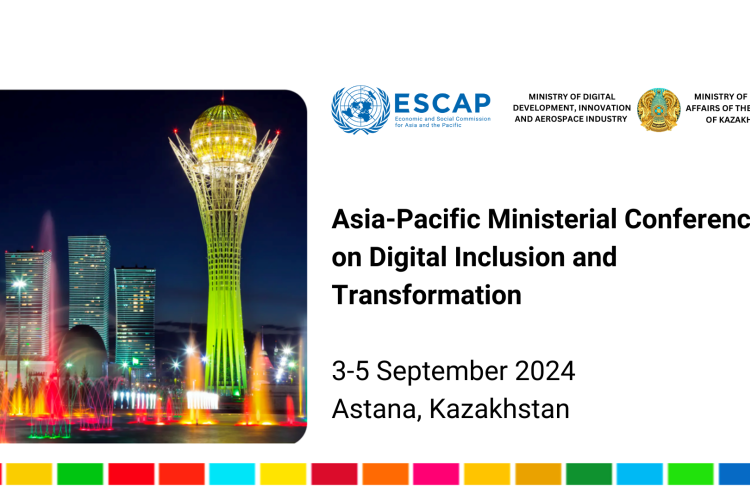Building a Resilient Digital Economy: Fostering SMEs in Central Asia
The year 2016 marks the beginning of a journey towards the implementation of the 17 Sustainable Developments Goals (SDGs). Information and communications technology (ICT) has a critical role to play towards the achievement of the SDGs, particularly SDG8 (decent work and economic growth), SDG9 (industry, innovation and infrastructure) and SDG17 (partnerships for the goals), among others. As a sustainable development enabler, broadband-enabled technologies support various critical public goods that can improve the economic and social well-being of populations in both rural and urban areas, noting that countries that harmonize technology investments with broader economic reforms realize digital dividends in the form of faster growth, more jobs, and improved services. Further, with broadband in place, small and medium enterprises (SMEs) can for example offer more innovative mobile and online services, and accelerate the path towards achieving the SDGs. From playing a critical role in modernizing logistics and marketing to developing digital banking solutions for financial inclusion, ICT, in particular broadband technology, has been transforming our society and economy.
For all the benefits brought about by a digital economy, noting the caveat of ICT development in hand with economic reforms that promote competitive business environments, increase accountability and upgrade education and skills-development systems to prepare people for the jobs of the future, it has also demonstrated that it is vulnerable to the impacts of natural disasters. When such disasters strike, they can bring about economic impact long after the initial shock of the disaster has passed.
In Asia and the Pacific, a region that is prone to a multitude of natural hazards, building resilient ICT infrastructure is a development imperative. This is because ICT supports other critical infrastructure and a wide range of socioeconomic activities. In particular, ICT can support SMEs that are likely to suffer most from disasters as they are often faced with insufficient capacity and resources to recover from the shock. As a source of employment, innovation and services, SMEs are the backbone of economic growth and an engine for inclusive and sustainable development in many developing countries.
Thus, for the purposes of this paper the term resilience, or more specifically “ICT resilience (e-resilience)” should be understood as making ICT infrastructure more durable so that such can better absorb and recover from calamities that can not only bring down transport and energy grids, but cut the digital lifeline to fledgling and established small and medium enterprises. Here it must be stressed that ICT infrastructure should be treated with the same urgency as power grids and transport linkages when such are damaged or destroyed.
This working paper aims to identify and bring to the attention of policy- and decision-makers, the ways to build resilient ICT in the SPECA countries in order to promote an inclusive and sustainable digital economy for the achievement of the SDGs. The paper focuses specifically on SMEs in the SPECA subregion, and the ways to facilitate their integration into the global value chain with improved ICT connectivity, taking into account existing disaster risks in the subregion. It analyses the state of ICT in the SPECA subregion and shows that a significant digital divide exists among SPECA countries. The paper proceeds to identify ICT-based strategies that are adopted in the SPECA subregion, particularly among SMEs, and the way forward in order to manage and reduce the impact of disasters on businesses and governments. The initial draft of this working paper was presented for comments and suggestions at a regional meeting held in Almaty, Kazakhstan, in September 2016.
This paper contributes to the implementation of the Asia-Pacific Information Superhighway (AP-IS) supported by the United Nations Economic and Social Commission for Asia and the Pacific (ESCAP). The AP-IS initiative aims to promote seamless regional broadband connectivity across the ESCAP member countries through better broadband infrastructure, more efficient Internet traffic and network management, e-resilience, and inclusive broadband, for the ultimate purpose of achieving inclusive and sustainable development in the region.
http://www.unescap.org/resources/building-resilient-digital-economy-fostering-smes-central-asia






